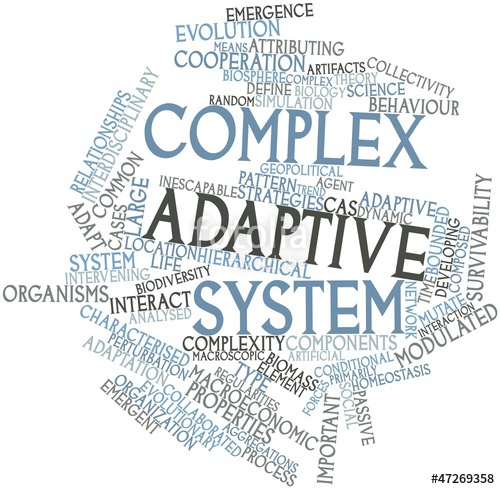The Center for Social Complexity at George Mason University is a specialized venue for pursuing interdisciplinary advanced research, discoveries, and inventions that support exploration and analysis of human social phenomena. Center faculty and graduate assistants use computer modeling and related techniques to explore and understand complex human social phenomena. Since its creation in 2002, the Center for Social Complexity has emerged as an innovative leader and active collaborator in the international Computational Social Science community.
The central mission of the Center is advanced research. Projects funded by organizations such as the National Science Foundation and the Office of Naval Research, and collaborations with the Smithsonian Institution and with other universities support studies of global significance. One such project, for example, uses spatial simulations to investigate the impact of disastrous events such as drought or epidemic on land and life in Africa’s Rift Valley. The implications of such studies are more than academic. Understanding and mapping the discrete human and natural elements that comprise cataclysmic events is ultimately instrumental in determining not only their causes but in creating a context within which solutions or even preventative measures can be developed.

The Center explores and emulates complex adaptive systems (CASs) within the social sciences. A CAS is one where a thorough understanding of the parts of a system is not sufficient to predict the system’s overall behavior, because the interactions among the parts are many and complex. They are “complex” in that they are dynamic networks of interactions, and the behavior of the whole cannot be predicted by the behavior of the components. They are “adaptive” in that the individual and collective behaviors mutate and self-organize in response to micro-events or collections of events.
A CAS is a true example of the whole being greater than the sum of its parts. CASs arise in many places in the real world, but among the most prominent complex adaptive systems is the complexity of human society.
The Center is interested in modeling complex adaptive systems to explain them and make useful predictions about their behavior. We are also interested in how different complex adaptive systems (society and technology, for example) interact in intricate and difficult to predict ways. Because complex adaptive systems are common and important to a wide range of disciplines, the study of these systems and their real-world application is strongly trans-disciplinary.
The Center’s work is both timely and dynamic. It continues to develop new research proposals while seeking opportunities for developing collaborative scientific relations with other centers and individual scholars dedicated to the advancement of Computational Social Science and allied initiatives. To discuss the possibility of future collaborations, please contact Dr. William Kennedy or Dr. Hamdi Kavak directors of the Center for Social Complexity.

